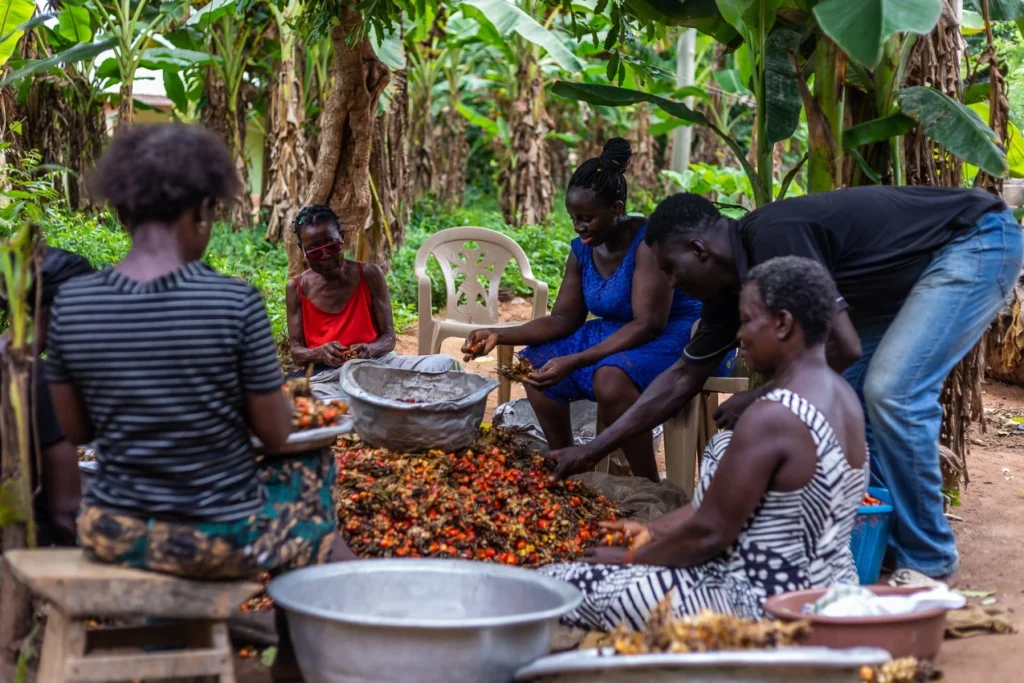Initiatives
Mushroom for Women
Mushroom for Women is an inspiring initiative that brings together a vibrant community of women from various backgrounds, particularly those leading female-headed households and single mothers. This program provides hands-on training in mushroom production, allowing participants to gain valuable skills while incorporating innovative farming techniques and waste recycling. With essential support in land access, infrastructure, capital, and business training, these women can confidently establish their own mushroom farms, all while having a guaranteed market for their products. Additionally, the initiative encourages the formation of savings groups, empowering members to enhance their financial access and navigate social and health-related challenges. It’s a wonderful journey of growth and empowerment!
Akwamu-Kwanyarko, Nnudu, and Aboasa have a significant number of unemployed young single mothers who spend much of their time engaged in labor-intensive work, such as stone quarrying and construction jobs, to support their households. Many of these women also undertake subsistence farming, despite the challenges posed by climate change, to provide food for their dependents and sell surplus produce to the local community.
Our mushroom farm, established in 2024, currently offers both permanent and seasonal employment to over 20 young people in Kwanyarko, the majority of whom are single mothers. In our first year of operation, we have produced over 15,000 kilograms of fresh oyster mushrooms, providing a healthy, nutrient-rich organic food source to community members and extending our reach throughout the Asuogyaman district and beyond.
While both women and men face harmful impacts from climate change, women are at a higher risk due to their direct and indirect caregiving roles in households, reduced access to agricultural land, limited extension services and inputs, and gendered social norms that hinder their ability to adapt. Mushroom cultivation helps reduce vulnerability to climate change since it is not dependent on rain and can be grown year-round with minimal land and labor, utilizing locally sourced waste materials.
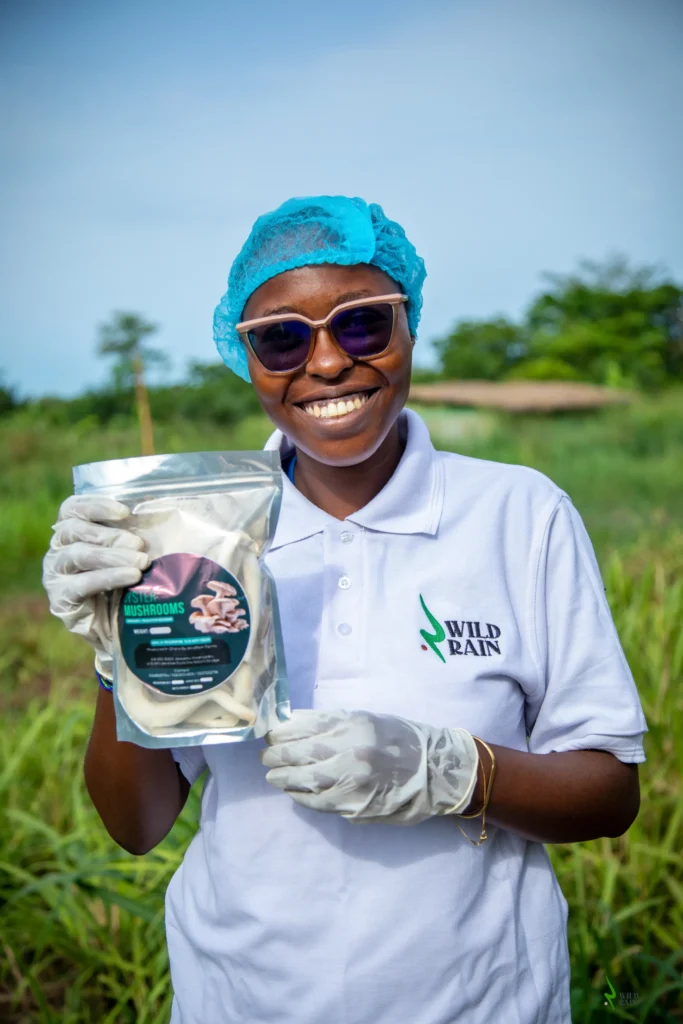
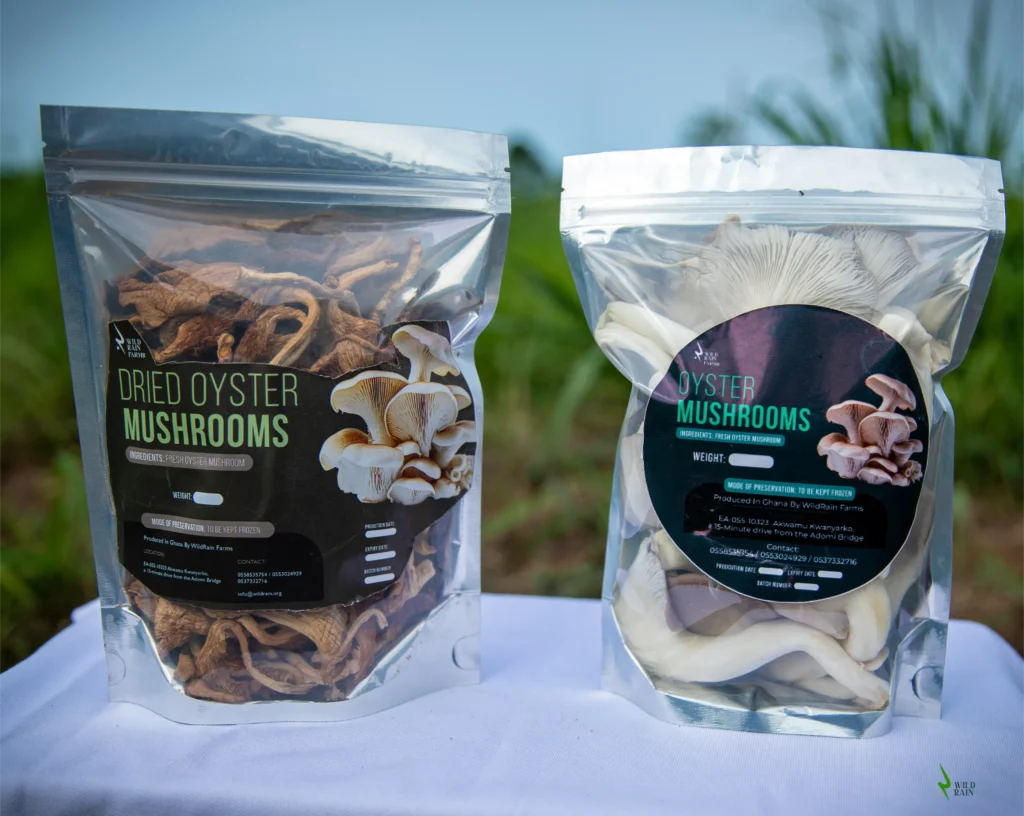
Koroyɛ Agroforestry Cooperative (KACO)
KACO unites smallholder farmers in a vibrant community, fostering a spirit of co-learning that directly confronts the pressing challenges of food insecurity, malnutrition, and poverty. Koroyɛ, an Akan word meaning ‘togetherness’, signifies a vision that champions collective action over solitary efforts, promoting a supportive environment where farmers can thrive. By embracing agroforestry practices, we not only enhance water regulation and soil fertility but also sequester carbon, diversify food crops, and enrich household diets, thereby bolstering self-sufficiency and food security.
Yet, transformation is a journey that requires deliberate shared learning. To realize the full potential of agroforestry, we are addressing data gaps in the agricultural value chain, building capacity, establishing collective governance, and working tirelessly to secure vital financing for adoption of agroforestry on farmers’ plots.
Together, our cooperative members engage in deep conversations to unravel the complexities within the agri-food system that affect the community and district. Through dialogue, they collaboratively design innovative solutions to tackle obstacles ranging from productivity issues like soil fertility and irrigation to barriers such as land tenure, financing, market access, and systemic challenges like climate change and biodiversity restoration.
In partnership with the Ghana Youth Environmental Movement (GYEM), we have designed a remarkable agroforestry model farm that serves as a hub for peer-to-peer and collective learning among members. Once a degraded landscape, this site has been revitalized into a thriving agri-silviculture system, flourishing with native trees, fruit trees, vegetables, and herbs. Farmer training covers a rich array of topics, including agroforestry design, land preparation, rainwater harvesting, soil testing, cover cropping, composting, and integrated pest management, among others.
Thanks to the support of WildRain and GYEM, our members receive seedlings, farming inputs, and financial grants, empowering them to together adopt agroforestry practices on their plots.
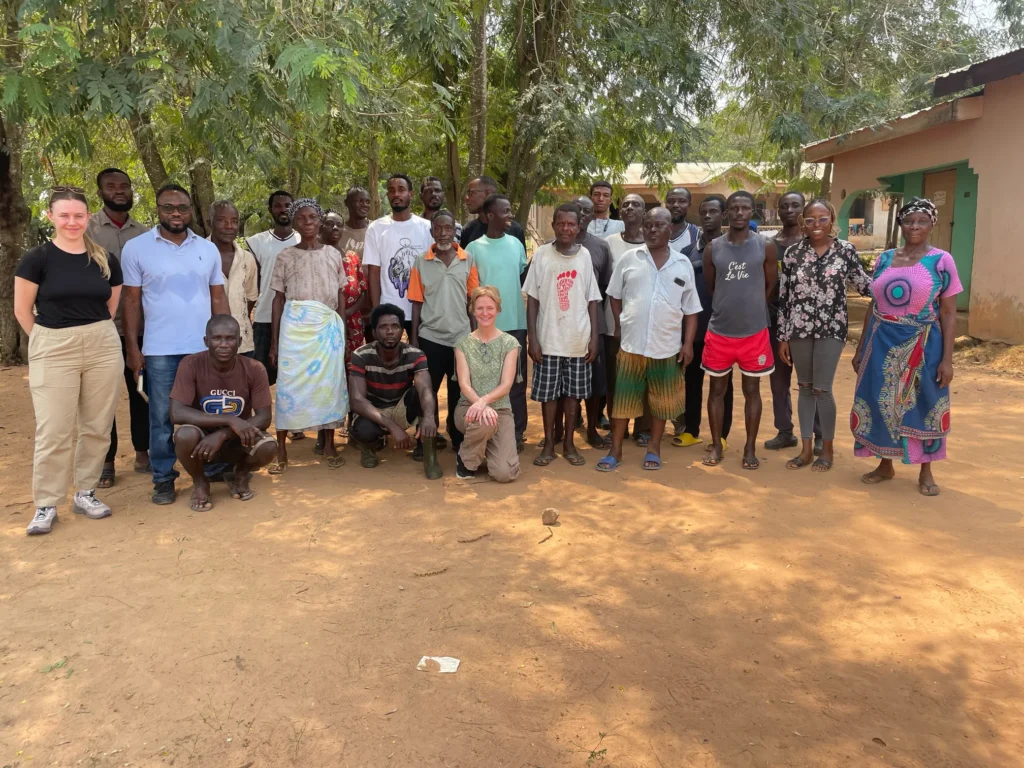
Asuogyaman Food Partnerships
The local food partnerships in Asuogyaman aim to bring together stakeholders throughout the food system to collaboratively envision and work towards building a healthy, equitable, resilient, and sustainable food system in the district. Stakeholders include farmers, cooperatives, community-based organizations, local businesses, the district assembly (local government), and educational institutions. This initiative promotes inclusive governance at the local level by facilitating conversations among food system actors, allowing for collaboration and the integration of local solutions into the assembly’s development plans. The dialogues facilitated by these partnerships foster community ownership of actions, build trust, and help identify challenges in the district, which can inform the development of strategies to address systemic issues within the food system.
In February 2025, we partnered on a sustainable agriculture project with University of Ghana and University College London (UCL). This project is creating a diverse network across Ghana, the UK, Brazil, and Nigeria to explore the potential challenges and opportunities for utilizing innovations and approaches in agricultural practices. The goal is to help subsistence farmers in Ghana better leverage the pest-control abilities of their native natural enemies. Some of the innovative strategies being explored include augmenting natural enemy populations by constructing semi-natural nesting habitats and substrates, relocating native species from areas of abundance, practicing ecologically appropriate planting, and establishing small-scale husbandry of natural enemies within farming communities such as Kwanyarko.
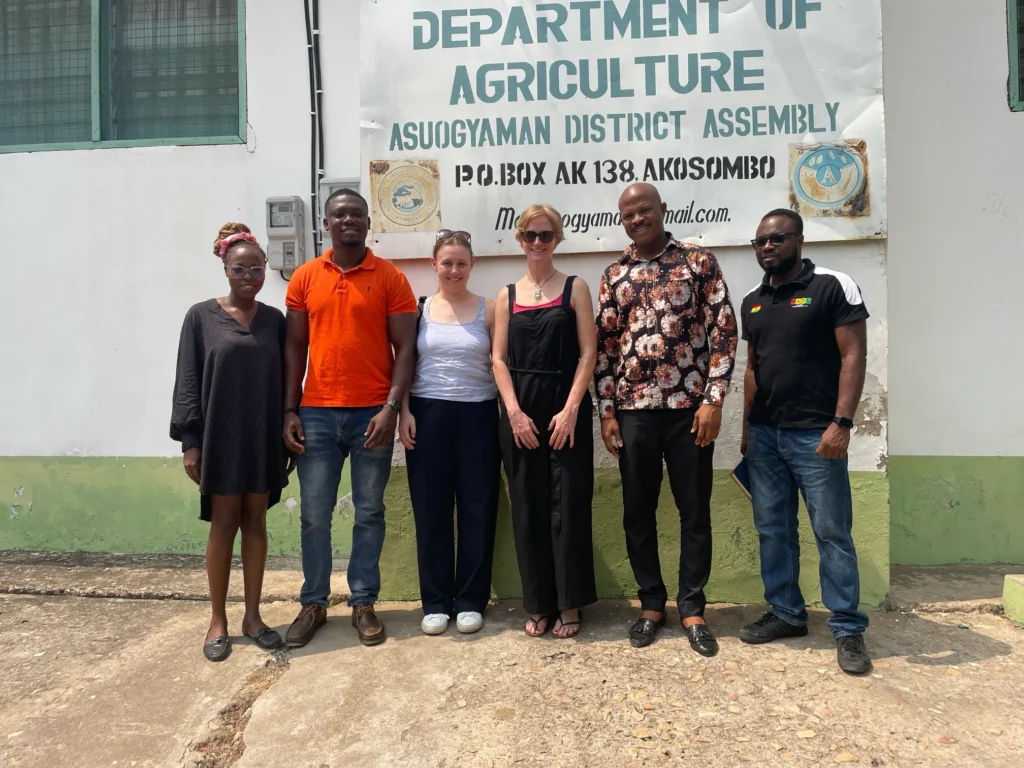
Feast With Farmers
